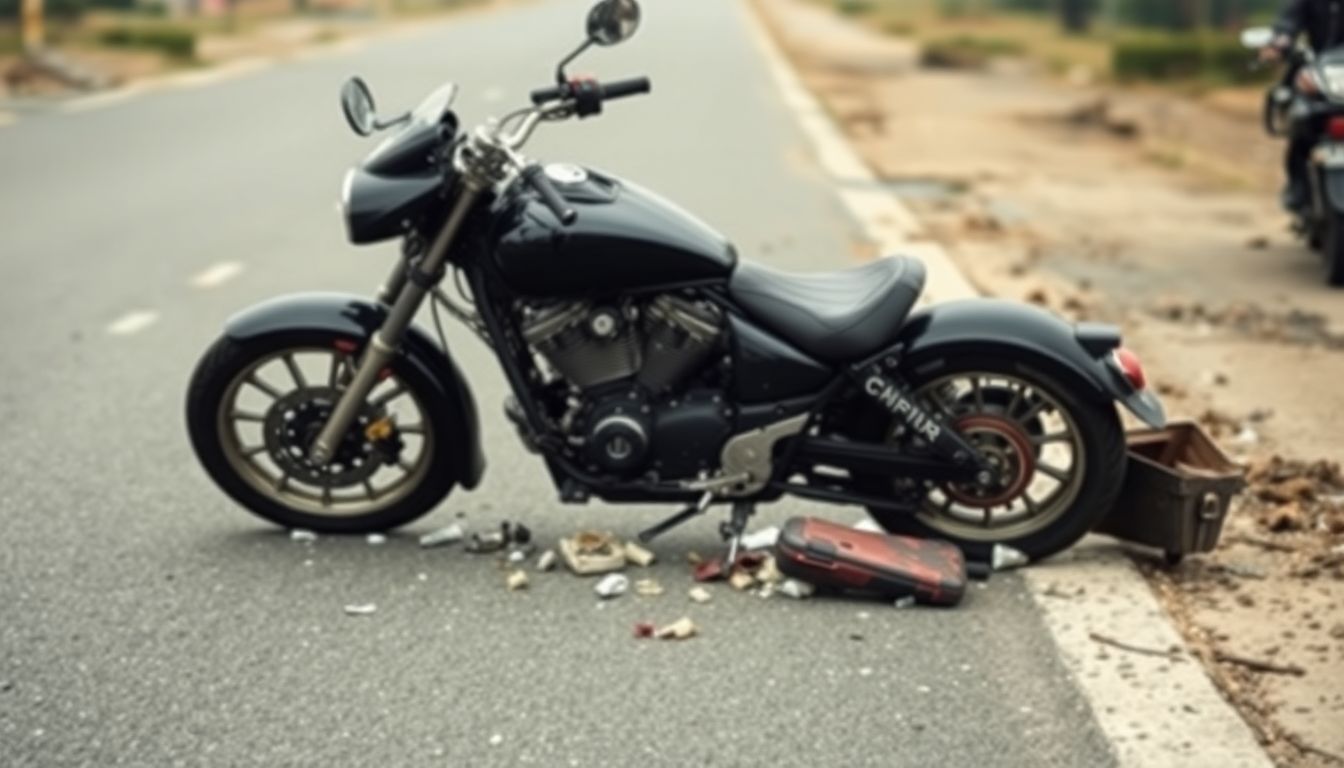Motorcycle accidents can turn your life upside down. Each year, thousands of riders face serious injuries and legal battles after crashes. This guide will help you understand your rights and options after a motorcycle accident.
Learn how to protect yourself and get the compensation you deserve.
Key Takeaways
- Act fast after a motorcycle crash: Call 911, gather evidence, seek medical care, and report to insurance.
- Insurance companies often lowball motorcyclists. Don’t accept the first offer without talking to a lawyer.
- Prove negligence with police reports, witness statements, and accident scene photos to build a strong case.
- Damages include economic (medical bills, lost wages) and non-economic (pain and suffering) types.
- Not wearing a helmet can hurt your claim, even in states without helmet laws. It may lower your compensation.
Immediate Steps After a Motorcycle Accident

Motorcycle accidents require quick action to protect your health and legal rights. Taking the right steps immediately after a crash can greatly impact your claim’s success.
- Ensure safety: Move to a safe area if possible and check for injuries.
- Call 911: Report the accident and request medical help, even for minor injuries.
- Gather evidence: Take photos of the crash scene, vehicle damage, and injuries.
- Collect witness information: Get names and contact details of anyone who saw the accident.
- Exchange information: Obtain the other driver’s name, contact details, and insurance information.
- Seek medical attention: Visit a doctor promptly, even if you feel fine.
- Document expenses: Keep records of all medical bills and repair costs.
- Report to insurance: Notify your insurance company about the accident.
- Avoid admitting fault: Do not apologize or accept blame for the crash.
- Contact a lawyer: Consult a motorcycle accident attorney to protect your rights.
- Preserve evidence: Keep your damaged motorcycle and gear as proof.
- Track lost income: Record any missed work days due to the accident.
- Be cautious with adjusters: Limit discussions with insurance adjusters until you speak with a lawyer.
Filing an Insurance Claim
Filing an insurance claim after a motorcycle accident can be tricky. You must act fast to protect your rights. First, call your insurance company right away to report the crash. Give them basic facts about what happened.
Don’t admit fault or give too many details yet. Next, gather all proof you can. This includes photos of the scene, your injuries, and damage to your bike. Get contact info from witnesses too.
Keep all medical bills and records of missed work.
Evidence is key in motorcycle claims. The more you have, the stronger your case will be, says John Smith, a veteran accident lawyer.
Insurance companies often lowball motorcyclists. They may offer a quick, small settlement hoping you’ll take it. Don’t fall for this trap. Your claim might be worth much more. Lost wages, pain, and future medical costs all count.
An expert can help figure out the true value of your claim. With solid proof and smart negotiating, you can get fair payment for your losses.
Proving Negligence After a Motorcycle Accident
Proving negligence in a motorcycle accident claim requires solid evidence. Riders must show that the other driver failed to use reasonable care, which led to the crash. Police reports, witness statements, and accident scene photos can help build a strong case.
These pieces of evidence link the driver’s actions to the accident and resulting injuries. Expert witnesses may also play a key role in proving fault, especially in complex cases.
Damages in motorcycle accident claims fall into two main groups: economic and non-economic. Economic damages cover medical bills, lost wages, and property damage. Non-economic damages include pain and suffering, which can be harder to measure.
If both parties share fault, comparative negligence rules may reduce the compensation awarded. The use of a helmet can also affect insurance settlement offers, even in states without helmet laws.
Types of Damages in a Motorcycle Accident Claim
Motorcycle accident claims involve various types of damages. These damages fall into two main categories: economic and non-economic.
- Economic Damages:
- Medical expenses: This includes hospital bills, doctor visits, medications, and therapy costs.
- Lost wages: Compensation for income lost due to time off work after the accident.
- Future lost earning capacity: Money awarded for reduced ability to earn income in the future.
- Property damage: Costs to repair or replace the motorcycle and other damaged property.
- Non-Economic Damages:
- Pain and suffering: Compensation for physical pain and emotional distress caused by the accident.
- Loss of enjoyment of life: Money awarded for inability to enjoy hobbies or activities as before.
- Disfigurement: Damages for permanent scars or visible injuries resulting from the accident.
- Loss of consortium: Compensation for impact on relationships with spouse or family members.
- Punitive Damages:
- Awarded in cases of extreme negligence or intentional harm by the at-fault party.
- Meant to punish the wrongdoer and deter similar behavior in the future.
- Factors Affecting Damage Awards:
- Helmet use: Not wearing a helmet when required by law can reduce the settlement amount.
- Comparative negligence: The victim’s role in causing the accident may lower the damage award.
- Expert testimony: Specialists may be needed to calculate complex damages like future earnings.
- Settlement vs. Trial Value:
- Settlement value is often lower than potential trial awards.
- Trials carry risks but may result in higher compensation if successful.
Dealing with Insurance Adjusters
Insurance adjusters often try to settle motorcycle claims quickly and cheaply. They may offer low settlements or deny valid claims. As a motorcyclist, you must be ready to fight for fair compensation.
Gather strong evidence like photos, witness statements, and medical records to support your claim. Don’t accept the first offer – it’s usually too low. Stay firm but polite when talking to adjusters.
If they’re not being fair, consider getting a lawyer to help negotiate.
I’ve seen many cases where adjusters undervalue motorcycle claims compared to car accidents. They may wrongly assume the rider was at fault or exaggerate minor issues. Stand your ground and don’t let them pressure you into a bad deal.
Know your rights and the true value of your claim before negotiating. Getting prompt medical care after an accident is crucial – it creates a paper trail of your injuries. With the right approach, you can overcome adjuster bias and get the settlement you deserve.
Challenges in Motorcycle Accident Claims
Motorcycle accident claims face unique hurdles. Many people think bikers are reckless, which can hurt their chances for fair pay. This wrong idea often leads to unfair treatment in the claims process.
Insurance companies may try to blame the rider, even if another driver caused the crash. They might offer less money, hoping the biker will take it out of desperation.
Proving fault in these cases can be tough. Other drivers often say they didn’t see the motorcycle, but that’s not a valid excuse. Lawyers must work hard to show the other driver was careless.
They need to gather strong proof, like witness statements and traffic camera footage. Medical records are also key to show how badly the rider was hurt. With the right help, bikers can overcome these challenges and get the money they deserve.
Additional Considerations for Motorcycle Accident Claims
Motorcycle accident claims involve unique factors that can affect your case. You must consider helmet use, partial fault, and state-specific laws when filing a claim.
What If You Are Partially At Fault?
Partial fault in a motorcycle crash can impact your claim. Many states use comparative negligence rules, which may lower your compensation based on your share of blame. For example, if you’re found 20% at fault, you might only get 80% of the total damages.
Some states have stricter laws called contributory negligence, where any fault on your part could bar you from getting any money.
Not wearing a helmet when required by law can hurt your case. Insurance companies might offer less money if they think your injuries were worse because you didn’t wear one. The value of your claim depends on factors like how bad you’re hurt, your medical bills, lost wages, and how the crash affects your daily life.
The next part will cover dealing with insurance adjusters after a motorcycle accident.
Impact of Not Wearing a Helmet
Not wearing a helmet can hurt your motorcycle accident claim. Insurance companies look at helmet use when they review cases. They might offer less money if you didn’t wear one. Juries may also think you were careless if you rode without a helmet.
This view could lower the amount of money you get for your injuries.
Helmets save lives in motorcycle crashes. They also protect you legally. If you don’t wear one, it’s harder to prove your injuries weren’t made worse by that choice. Your compensation might be less because of this.
Safety rules stress the need for helmets to prevent deadly injuries. Wearing one helps both your health and your legal case.
Comparative Negligence Rules
Comparative negligence rules affect motorcycle accident claims in many states. These rules can lower your compensation based on your share of fault in the crash. For example, if you’re found 20% at fault, you might get 20% less money for your losses.
Insurance companies look at things like helmet use when they figure out who’s to blame.
Different states handle partial fault in various ways. Some use contributory negligence, which means you get nothing if you’re even slightly at fault. Others use comparative negligence, where your payout drops by your fault percentage.
It’s crucial to get legal help to deal with these complex rules. A lawyer can fight for fair treatment and make sure you get enough money to cover all your accident-related costs.
Getting Legal Help After a Motorcycle Accident
Legal help after a motorcycle accident can make a big difference. A skilled lawyer will fight for your rights and help you get fair compensation.
When to Seek Legal Help
Legal help is crucial after a motorcycle accident. Seek an attorney right after getting medical care, even for small injuries. They can guide you through the claims process and help gather evidence to support your case.
Don’t accept the first settlement offer without talking to a lawyer. Insurance companies often lowball victims, but an expert can ensure you get fair compensation.
I once helped a client who almost took a low offer after his crash. We fought hard and got him three times more money for his injuries. A good lawyer knows state laws on fault and how they affect your claim.
They can also handle tough talks with insurance adjusters. For the best results, find a firm that focuses on motorcycle accidents. They have the skills to fight for your rights and get you the most money possible.
Ensuring the Best Outcome for Your Claim
To get the best result for your motorcycle accident claim, act fast and smart. Gather all proof right after the crash. Take photos, get witness names, and keep all medical bills. Most bike crashes happen because other drivers don’t see motorcycles.
This fact can help your case. Talk to a lawyer who knows bike laws well. They can guide you through the tricky parts of your claim. Insurance companies often treat bikers unfairly.
A good lawyer will fight this bias and work to get you fair pay for your losses.
Your health comes first after a crash. See a doctor even if you feel fine. Some injuries show up later. Keep all records of your care and costs. These will back up your claim for money to cover medical bills, lost wages, and pain.
A skilled lawyer can help you figure out how much your claim is worth. They’ll make sure you ask for enough to cover all your needs. The next step is learning about the types of damages you can claim in a motorcycle accident case.
Conclusion
Motorcycle accident claims can be complicated, but understanding the process is crucial. With accurate information, you can safeguard your rights and pursue appropriate compensation.
It’s important to take prompt action, collect evidence, and consider legal assistance. Your response after an accident significantly impacts the outcome. Stay informed, prioritize safety, and ride with assurance.
FAQs
1. What steps should I take after a motorcycle crash?
First, ensure your safety and seek medical care. Document the scene with photos and gather witness information. Report the accident to the police and your insurance company. Consult a lawyer who specializes in motorcycle claims to protect your rights.
2. How long do I have to file a motorcycle accident claim?
The time limit, or statute of limitations, varies by state. Generally, you have two to three years from the accident date to file a claim. Act quickly to preserve evidence and meet legal deadlines. Prompt action improves your chances of fair compensation.
3. What damages can I recover in a motorcycle accident claim?
You may be entitled to compensation for medical expenses, lost wages, property damage, and pain and suffering. In severe cases, you might recover damages for permanent disability or disfigurement. A skilled attorney can help maximize your claim’s value.
4. How does fault affect my motorcycle accident claim?
Fault determination impacts your ability to recover damages. In some states, you can still receive compensation even if partially at fault. However, your award may be reduced by your percentage of fault. An experienced lawyer can help establish liability and defend against unfair blame.

